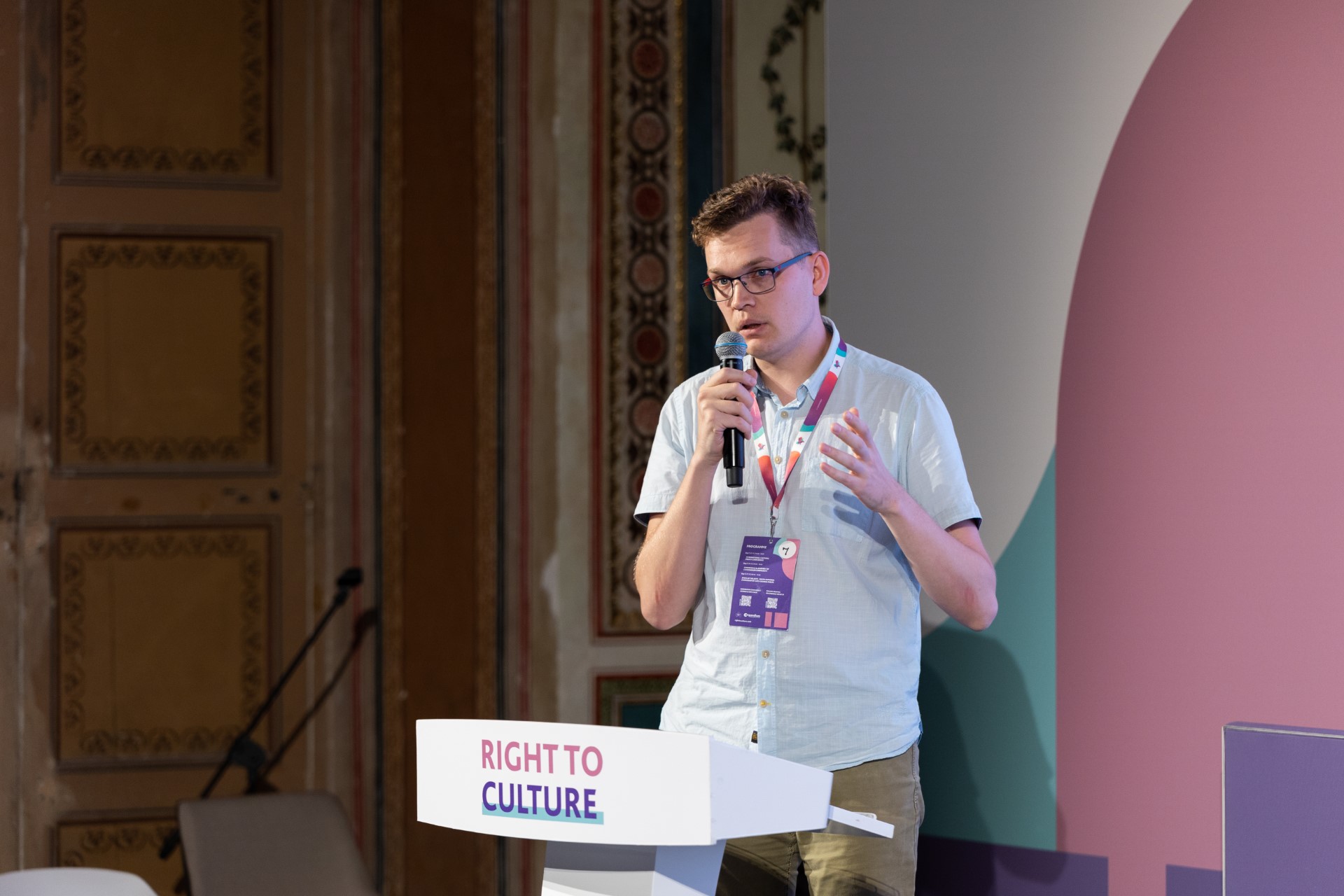 Maskuliūnaitė and Tininis at the conference in Malta
Maskuliūnaitė and Tininis at the conference in MaltaHead of the Division of Monitoring and Analysis Radvilė Maskuliūnaitė and Senior Analyst Martynas Tininis attended the International Cultural Policy Conference in Valletta, Malta. It was organised by the Compendium of Cultural Policies and Trends and the Arts Council Malta. M. Tininis presented the Lithuanian Council for Culture's Sustainable Cultural Development model for 2019-2023, its challenges and results. The team also attended the 6th General Assembly of the Compendium of Cultural Policies and Trends and met with a large network community.
This year’s topic at the conference was the Right to Culture. The Right to Culture is a cornerstone of the Arts Council Malta’s strategy, which is captured in the slogan “Care. Create. Flourish.” The event had three expert panels on creative freedom, cultural diversity and accessibility, and cultural democracy. Cultural policymakers, researchers, experts, artists, and academics from different European countries shared their perspectives and experiences. The participants had a lively discussion on the cultural policy pathways currently underway to change society and enrich people’s lives through culture and the arts.

M.Tininis presents Sustainable Cultural Development Model at the Conference in Malta, the Arts Council Malta photo
The Head of the Division of Monitoring and Analysis R. Maskuliūnaitė says that “participation in the conference gave new ideas for research and analysis. I attended interesting presentations and discussions on creative freedom, cultural diversity and accessibility, cultural democracy. The conference posed questions like how could the cultural sector contribute to the promotion of creative freedom, what should we do to ensure that it is not restricted, and what impact does political correctness have on an artist’s freedom of expression?”
Senior Analyst M. Tininis agrees that “the topic of creative freedom received a lot of attention during the conference. The fact that the authoritarian government seeks to restrict the creative freedom of artists first, followed by the media. And then come cuts to civil liberties. If we defend the artists’ freedom to create, we defend democracy in general.”

International Cultural Policy Conference in Valletta, Malta, the Arts Council Malta photo
R. Maskuliūnaitė says that “equal opportunities and access to culture for different groups in society are very important. The Lithuanian Council for Culture is interested in seeing the main trends and ideas in international cultural policy in other countries.” One of the functions of the Lithuanian Council for Culture is analysing the processes of the culture and art sectors in the country to carry out research and analyses in the field of culture and art and make recommendations on the improvement of the cultural policy model. “This can help strengthen the functions of our organisation in the implementation of cultural and artistic research, and draw attention to current problems and issues at the international level, which are also relevant in Lithuania,” says Radvilė.

M.Tininis presents Sustainable Cultural Development Model at the Conference in Malta, the Arts Council Malta photo
Compendium of Cultural Policies and Trends
As of 2019, the Lithuanian Council for Culture is a member of the Compendium of Cultural Policies and Trends. The Compendium acts as the main platform for European cultural policy analysis, with independent experts from over 40 countries providing analysis. The Compendium also works in cooperation with cultural policymakers, administrators, cultural and arts organisations, institutions and their networks, researchers and documentation specialists, journalists, and students. Publicly available information and data support decision-making processes, benchmarking and researching national cultural policies, data collection, and the dissemination of good practices.